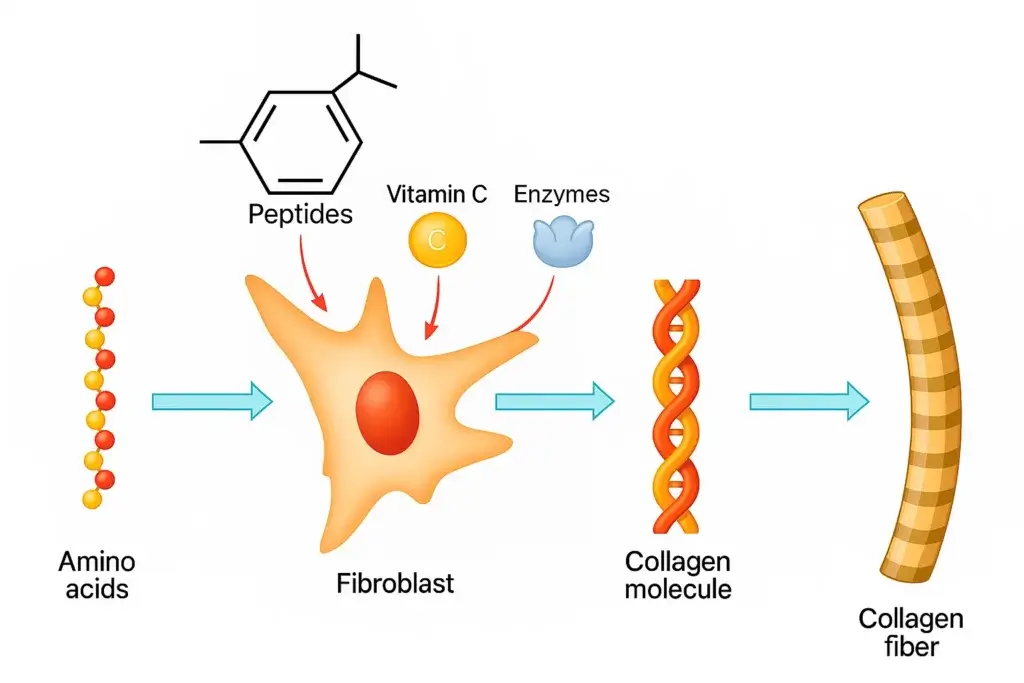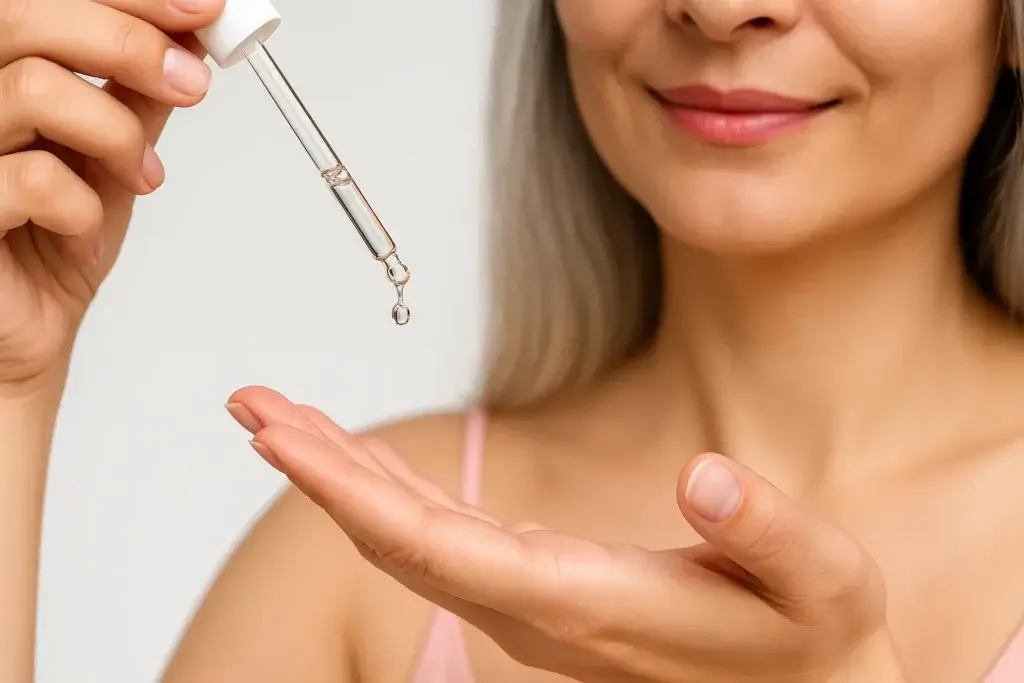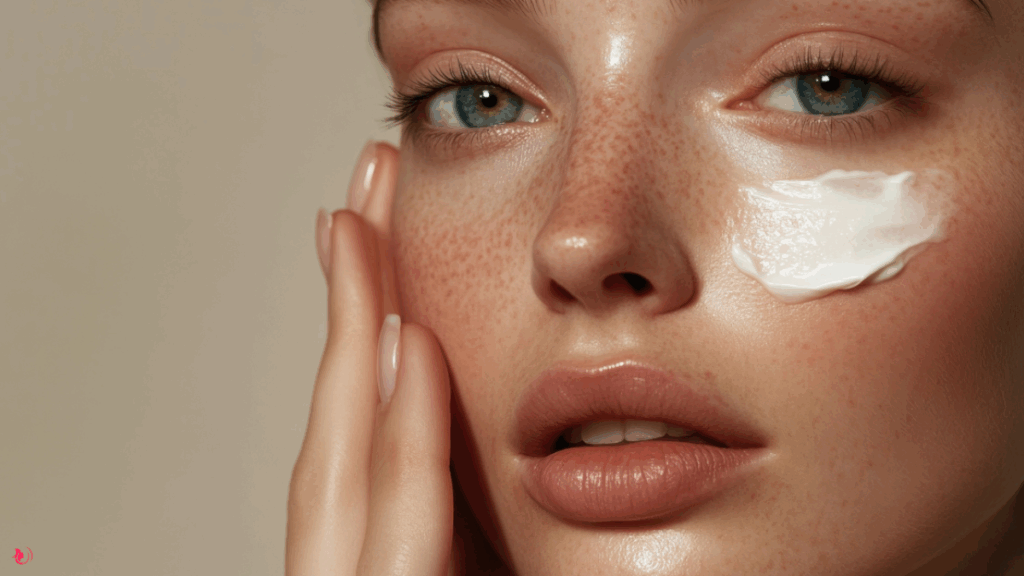I shall not lie, 2025 has unleashed some seriously impressive skincare upgrades. Think clever hacks, next-level injectables, AI-powered mirrors, and bioactive skincare that is shaking up the beauty scene.
Why? Because, as the classic marketing rule goes: supply and demand. And right now, people are demanding skincare that actually works, feels natural, and plays nice with the planet.
And bioactive beauty ingredients are becoming more and more popular because they work with your skin’s natural processes. Look, to vastly summarise, bioactive beauty is all about using ingredients that work with your skin’s natural processes and not against them. It is basically science meets nature, giving your skincare routine a smart upgrade that is ① powerful, ② planet-friendly, and ③ perfectly personal.
unlike regular skincare, which mostly targets the surface, bioactive products work at a deeper level, boosting collagen, speeding up cell renewal, and supporting your skin’s natural balance. Bioactive ingredients like peptides, enzymes, plant stem cells, and marine extracts go deeper into the skin to help repair, hydrate, and protect from the inside out.
In short, it is a smarter, science-backed way to care for your skin, and is perfect for those looking for real results, not just a quick fix. Remember, these clever ingredients do not just sit pretty, they are designed to work with your skin’s natural rhythm for results that actually show. And with ingredients borrowed from plants and the sea, they tick all the boxes for eco-savvy skincare lovers who want brains, beauty, and a clear conscience.
It is this level of precision and effectiveness that makes bioactive routines a true breakthrough in the beauty industry.
Trends In Bioactive Beauty For 2025
Peptides And Proteins

Peptides (often called the building blocks of the skin) are short chains of amino acids that help keep your skin firm, smooth, and youthful. They work by sending signals to your skin cells, telling them to produce more collagen and elastin (two proteins that keep skin tight and bouncy). But as we age, collagen production drops by about 1% each year after age 20, which leads to sagging, fine lines, and wrinkles. That is where peptides come in. They help boost collagen and elastin, giving your skin a more lifted and plump look.
Of course, peptides come in many varieties, each designed to tackle specific skin concerns. Signal peptides, for instance, send messages to skin cells to boost collagen production, while carrier peptides deliver essential minerals that aid in skin healing. Complementing these, silk and keratin proteins work to strengthen the skin’s structure and repair the skin barrier, locking in hydration. Together, these bioactive ingredients form a powerhouse team, perfect for fighting the signs of ageing and bringing your skin back to its healthiest, most radiant state.
Probiotics For Skin Health
The microbiome revolution has changed the way we think about healthy skin. Probiotics (good bacteria) are now seen as heroes in keeping your skin balanced and strong. They help control your skin’s pH, fight off bad bacteria, and calm inflammation. This support helps your skin keep moisture in and protects it from things like pollution and harsh weather.
But here is a little-known fact: about 80% of people dealing with acne or eczema find relief with probiotic skincare. Probiotic serums and creams are quickly becoming essential for tackling common skin issues like acne, rosacea, and eczema. Simply because they have the ability to restore balance to your skin’s natural ecosystem. On top of that, prebiotics and postbiotics (which nourish and boost probiotics) are gaining popularity, creating a complete support system for healthier, happier skin.
Marine Bioactives
Marine bioactives are the ocean’s hidden skincare treasures, packed with hydration and antioxidants. Ingredients like algae, seaweed, and marine collagen are full of minerals, vitamins, and natural sugars that help lock in moisture, strengthen your skin’s barrier, and fight damaging free radicals.
For example, algae extracts (especially red and brown types) are great at neutralising free radicals, which means they help protect your skin from pollution and sun damage. Seaweed provides deep hydration and calms inflammation, making it perfect for sensitive or dry skin.
Studies actually show that skincare products with marine bioactives can improve skin hydration by up to 30% and reduce signs of ageing with regular use. These ingredients also mix really well with others, allowing brands to create powerful skincare blends for all skin types.
Plant-Based Retinols

Plant-based retinols, led by powerhouse ingredient bakuchiol, have truly transformed the world of retinoids. This is because Bakuchiol (derived from the seeds of the Psoralea corylifolia plant) provides the same regenerative benefits as synthetic retinoids but without some of the harsh side effects.
Other plant-derived retinol substitutes, such as rambutan extract, are also gaining popularity for their skin-renewing properties. Look, as consumers increasingly prioritise natural and sustainable ingredients, plant-based retinols represent a kinder, more inclusive approach to achieving youthful, radiant skin.
Product Spotlight
If you are new to bioactive skincare, start simple. Use a gentle bioactive cleanser to remove dirt without drying out your skin. Then, apply a peptide-rich serum, for example, to tackle concerns like ageing or dullness. Finish with a moisturiser containing hyaluronic acid or marine extracts to lock in moisture.
At night, try products with plant-based retinols or enzymes to help your skin renew while you sleep. Just remember, consistency and layering from the lightest to the heaviest product will help you get the best results.
Some of this year’s top picks include:
- Dermalogica Age Smart Super Rich Repair: Packed with peptides and antioxidants, this cream combats dryness and fine lines.
- Biossance Squalane Plus Probiotic Gel Moisturiser: A lightweight yet potent option that balances the microbiome while providing hydration.
- Algenist GENIUS Ultimate Anti-Ageing Cream: Marine algae and patented ingredients make this a powerhouse for tackling multiple signs of ageing.
Dermatologists recommend peptides and probiotics because they help repair and protect your skin, and beauty influencers love sharing their amazing results. On Instagram and TikTok, you will find plenty of real people showing how bioactive skincare has improved their skin. Many brands also make sure their ingredients are collected responsibly, like harvesting plant stem cells without harming the plants. They also use eco-friendly packaging like glass jars and biodegradable materials, which people appreciate as they look for greener beauty choices.
The Future Of Bioactive Beauty
The future of bioactive beauty looks exciting, thanks to new research and technology. As a matter of fact, the global bioactive beauty market was worth about £3.5 billion in 2023 and is expected to grow by over 8% each year, showing how important this trend is becoming.
And as science advances, we will see even smarter skincare ingredients. Research into how genes work and how the skin’s natural bacteria live together is leading to products that can influence skin health at a deeper level. Personalised skincare, using AI and genetic tests, is also improving, offering products tailored just for you.
Looking ahead, bioactive skincare will help us care for our skin in a way that is healthy, effective, and sustainable, keeping both you and the planet happy, even more so than now.


